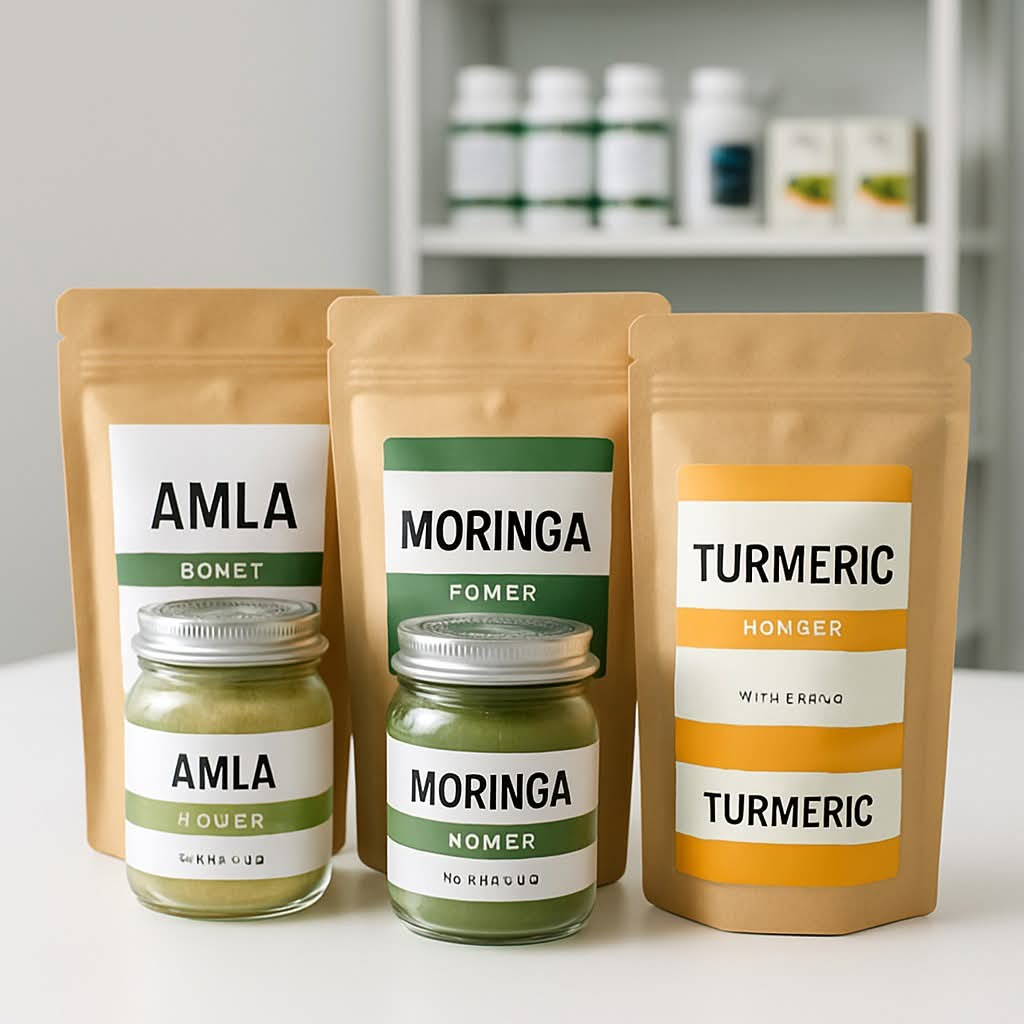The European Union (EU) has emerged as one of the largest and fastest-growing markets for nutraceuticals—a sector that blends nutrition with pharmaceutical-like benefits. With rising consumer demand for functional foods, dietary supplements, and herbal extracts, the EU nutraceutical market is projected to cross USD 100 billion by 2030, driven by health awareness, aging populations, and regulatory clarity.
—
1. Why Nutraceuticals Are Thriving in Europe
Preventive Health Mindset: Consumers are shifting from treatment to prevention, looking for natural ways to support immunity, heart health, digestion, and skin care.
Rise of Herbal & Plant-Based Products: Ingredients like Amla, Ashwagandha, Moringa, Turmeric, and probiotics are gaining traction as natural, safe alternatives to synthetic supplements.
E-commerce Growth: Online retail and direct-to-consumer channels make nutraceuticals more accessible, especially in countries like Germany, France, Italy, and the UK.
—
2. EU Regulations – A Double-Edged Sword
The European Food Safety Authority (EFSA) sets strict guidelines for health claims, labeling, and safety standards.
While this makes market entry challenging, it also builds trust and credibility for approved nutraceuticals.
Companies investing in lab testing, certifications, and transparent sourcing will be best positioned to succeed.
—
3. Emerging Trends Shaping the Market
Personalized Nutrition: Supplements tailored to genetics, lifestyle, and age groups.
Functional Beverages & Foods: Nutraceutical powders and extracts being infused into juices, teas, yogurts, and snack bars.
Sustainability Focus: Eco-friendly packaging and ethically sourced ingredients are becoming non-negotiable.
Cross-Industry Partnerships: Nutraceuticals are expanding beyond pharmacies into cosmetics, sports nutrition, and wellness retail.
—
4. Opportunities for Exporters & Indian Suppliers
For exporters like Regal Impex, the EU market offers immense potential. India’s strength lies in:
Abundant raw materials (Amla, Moringa, Turmeric, etc.).
Competitive pricing compared to local EU producers.
Expertise in herbal extracts and organic certification.
By aligning with EU quality expectations and building long-term partnerships, Indian exporters can play a key role in shaping the future of nutraceuticals in Europe.
—
✅ Conclusion
The EU nutraceutical market is at the intersection of health innovation, consumer demand, and strict compliance. The future belongs to companies that can deliver trusted, high-quality, and sustainable nutraceutical products. For businesses in India, this is not just a market opportunity—it’s a chance to be a global partner in wellness.
The Future of Nutraceuticals in the EU: Trends, Opportunities & Challenges



